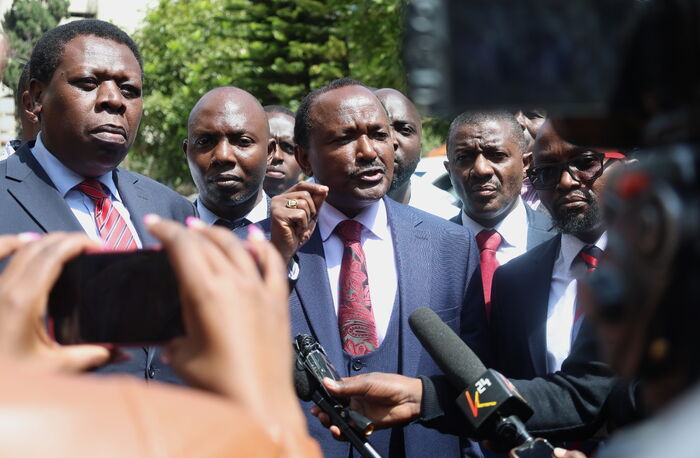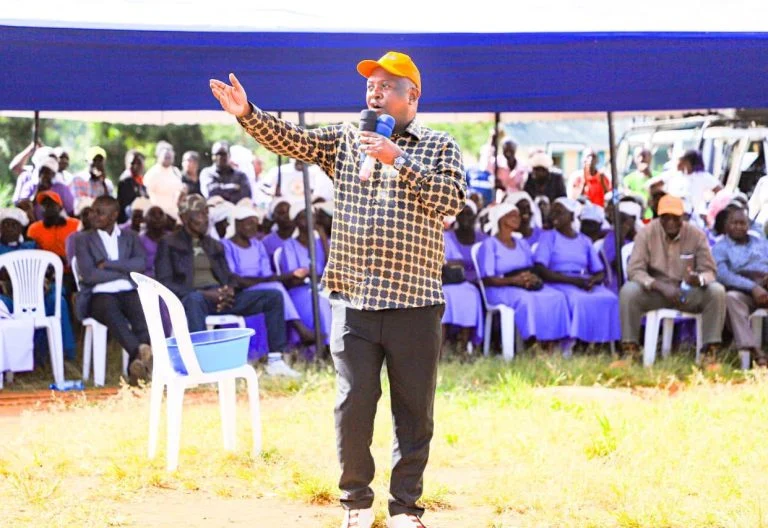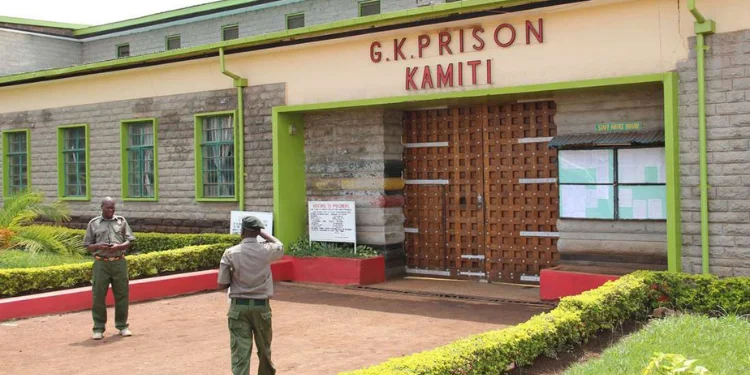In a blistering assessment, veteran legal practitioner Ndegwa Njiru has publicly denounced the government’s flagship Affordable Housing Programme (AHP) as a calculated scam, raising urgent concerns over widespread public deception, land grabbing and misuse of funds.
Through a statement shared on his X account on Thursday, October 30, 2025, Njiru claimed the controversial housing scheme has been “hijacked by powerful interests” and effectively repackaged as a vehicle for speculative real-estate profiteering rather than genuine social housing delivery.
“Not Affordable, Not Housing, Not Fair”
“Nobody is getting what they are promised,” Njiru declared, arguing that the scheme’s cost structure, approval processes and beneficiary lists all point to a deeply flawed system that leaves ordinary Kenyans exposed and vulnerable. He accused the state of creating the impression of progress while key fundamentals—transparency, fair allocation, timely completion—are being sacrificed.
According to Njiru, the AHP—launched with much fanfare as a solution to Kenya’s housing deficit—has instead become a front for land speculation, inflated building costs and exclusion of genuine low-income families.

How the Allegations Stack Up
Among the core claims laid out by Njiru:
- Beneficiary exclusion: He says many plots or units are allocated to well-connected individuals or companies, sidelining the very low-income households the programme was meant to serve.
- Land encroachment/compensation issues: Njiru points to cases where land originally earmarked for other use has been repurposed with minimal consultation or compensation to existing occupants—raising red flags over due process and property rights.
- Transparency failure: He criticises opaque procurement procedures, lack of public disclosure of contracts, and uncertainty over how the housing levy collected from citizens is being utilised.
- Affordability gap: Although branded “affordable,” Njiru argues the cost per unit remains out of reach for many Kenyans—casting doubt on whether the scheme truly serves the lower strata of society.
This forceful critique comes at a pivotal time. The Affordable Housing Programme has been central to the government’s agenda to address Kenya’s housing crisis, promising to deliver hundreds of thousands of units nationwide. But Njiru’s allegations now raise existential questions about the integrity of the project and whether it will fulfil its stated mission.
If his claims are substantiated, the fallout could be significant: erosion of public trust in housing policy, legal challenges from displaced or excluded Kenyans, and potential scrutiny of fund flows and project contracts by regulators or oversight bodies.
Government Under Pressure
In response to earlier accusations by other Western-country media and internal critics, the government has repeatedly defended the AHP, with the Ministry of Lands, Housing and Urban Development insisting the scheme is on track and compliant with due process. Nevertheless, Njiru’s intervention adds fresh urgency to the debate and intensifies demands for an independent audit or oversight review.
Observers say the key test now will be whether authorities respond by opening up the procurement and allocation processes to public scrutiny, and whether the housing levy streams can be traced in a transparent manner.














Leave a Reply